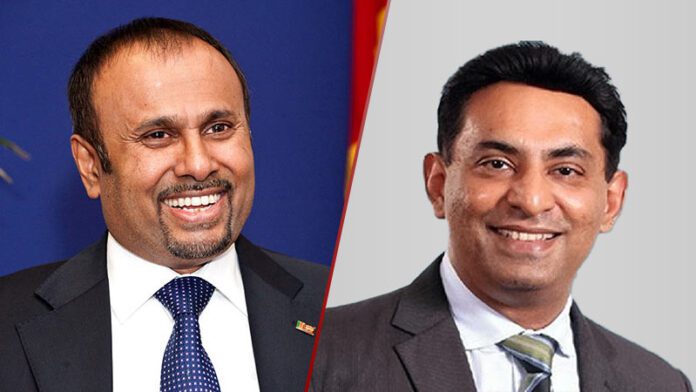The United States has made a bold move against corruption by sanctioning two high-profile Sri Lankan officials: Kapila Chandrasena, the former CEO of SriLankan Airlines, and Udayanga Weeratunga, the former ambassador to Russia. These sanctions, announced on International Anti-Corruption Day, aim to promote accountability and send a clear message against misuse of power. Both officials and their immediate family members are now banned from entering the United States.
Kapila Chandrasena and the Airbus Bribery Scandal
Kapila Chandrasena, who once held the prestigious position of CEO at SriLankan Airlines, has been accused of significant corruption. The U.S. State Department stated that Chandrasena accepted bribes to guarantee that the airline bought Airbus aircraft at significantly inflated prices. This deal not only cost the airline millions of dollars but also undermined public trust in Sri Lanka’s state-run enterprises.
Chandrasena is now publicly designated under Section 7031(c) of the U.S. State Department Appropriations Act, a legal provision used to hold individuals accountable for major corruption. As part of this designation, his immediate family members are also barred from entering the United States. These actions highlight how corruption can harm public institutions and erode the faith of citizens in their leaders.
The accusations against Chandrasena are part of a broader pattern of unethical practices that have plagued SriLankan Airlines in recent years. The national carrier’s history of mismanagement and scandals has often drawn criticism, but the U.S.’s direct action marks a turning point in addressing accountability on an international level.
Udayanga Weeratunga and the MiG Aircraft Scandal
Udayanga Weeratunga, a former ambassador to Russia, is accused of involvement in a corrupt scheme related to the purchase of MiG aircraft for the Sri Lanka Air Force. According to the U.S. State Department, Weeratunga orchestrated and personally profited from a corrupt deal, exploiting his position as a government official. Such actions not only waste public funds but also jeopardize national security by compromising the integrity of defense purchases.
Weeratunga, like Chandrasena, has been designated under Section 7031(c) for his involvement in “significant corruption.” His immediate family members are also affected by these sanctions, which prevent them from entering the United States.
13 US Military Firms Sanctioned: China’s Response to Taiwan Arms Deal
This case highlights the severity of corruption in defense-related contracts. When officials prioritize personal gain over public interest, it undermines a country’s security infrastructure and public confidence. The sanctions against Weeratunga are a clear warning to others who may misuse their positions for self-enrichment.
A Broader Fight Against Global Corruption
The sanctions against Chandrasena and Weeratunga are part of a larger effort by the United States to combat corruption and promote good governance globally. On the same day, the U.S. State Department announced actions against 14 other individuals implicated in corruption and human rights violations, alongside visa restrictions for dozens of others under different legal provisions.
These measures are based on U.S. laws such as Section 7031(c) of the Department of State Appropriations Act and Section 212(a)(3)(C) of the Immigration and Nationality Act.Such laws are designed to hold perpetrators of corruption accountable and deter future misconduct by barring corrupt officials and their families from enjoying privileges like U.S. entry.
Corruption cases involving public officials like Chandrasena and Weeratunga are especially damaging as they erode trust in government institutions. These designations demonstrate the U.S.’s commitment to addressing corruption that affects not just individual countries but global governance as a whole. By taking strong measures, the U.S. reinforces the idea that misuse of public office will have consequences, even beyond national borders.
The sanctions against Kapila Chandrasena and Udayanga Weeratunga send a strong message about the consequences of corruption. These actions by the United States highlight the importance of accountability in leadership and the international community’s role in combating unethical practices. With their immediate families also barred from entry into the U.S., the sanctions mark a significant step in addressing misconduct at the highest levels of governance.


